
Recovery after laparoscopy will take some time, although not as much as in abdominal surgery. The duration depends on the type of manipulation (diagnosis or treatment), the type of procedure (which organ was examined), the appearance of the complication and can take 2-4 weeks. During this period, a number of different events, including those related to alcohol consumption, do not stop in a person's life. Therefore, patients often learn when alcohol can be taken after laparoscopy.
Attitude to alcohol during recovery after laparoscopy
| Type of laparoscopic surgery | Important drinking-related adaptation features |
| Gynecological procedures | After endovideo surgery, a woman may experience nausea and swelling during the adaptation period. With the onset of pain, the doctor prescribes the use of non-steroidal anti-inflammatory drugs and antibiotics if an infectious-inflammatory focus is suspected. After a laparoscopy of an ovarian cyst, a woman needs to take hormonal medications to correct her hormonal background. For this reason, alcoholic beverages are not allowed before one and a half months, because the drug is not completely compatible with even small doses of alcohol. |
| Removal of appendicitis | After laparoscopic appendectomy, alcohol is prohibited because it can cause significant damage to the liver and threaten the development of cirrhosis. In addition, ethanol causes inflammation of the mucous membranes of all digestive organs. Due to the danger of bloating and the appearance of flatulence, the use of beer is even prohibited, because the drink is a natural fermentation product. The result of increased gas formation can be scattered sutures, and the attending physician decides in each case how much alcohol you can taste. |
| Removal of the gallbladder | After laparoscopic cholecystectomy, patients need to significantly adjust not only their diet, but also their entire lifestyle. The body needs to be helped to adapt to specific operating conditions, and taking certain medications can be lifelong. For this reason, alcohol is not only allowed after the intervention, it is definitely contraindicated, because the organ responsible for the breakdown of alcohol has been removed. Without meeting all the doctor's requirements, a favorable outcome is questionable |
For successful rehabilitation after any type of laparoscopy, it is important to follow simple rules for complete recovery of the body. Life does not end with the complete abandonment of alcohol, it acquires a new meaning and the colors of reality become brighter.
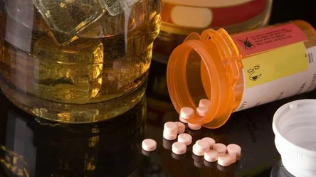
When the risks of taking ethanol are minimized
It is undesirable to drink alcohol after surgery. After that it is considered:
- abdominal surgery, the first minimum dose of ethanol can be taken after a month;
- tooth extraction - after 2-3 days;
- appandectomy (for purulent appendicitis) - after 2-3 weeks;
- gynecological operations (for uterine fibroids or ectopic pregnancy) - after 4 weeks.
- plastic and cosmetic operations - after 3 weeks.
The time factor affects the patient's age and physical condition. The average duration of abstinence during an appendectomy is 2-3 weeks, in young people aged 25-30 it can be 10-14 days, and in people over 35 years - 1. 5-2 months.
If you can't stop drinking, it's a good idea to talk to your doctor about approximate "safe" abstinence periods. This is primarily:
- for the removal of herniated intervertebral discs, as well as coccyx injuries;
- rectum (for hemorrhoids);
- thyroid gland;
- joints of limbs;
- prostate (for cancer or adenoma);
- testis (varicocelectomy for varicocele);
- knee area (at the knee joint);
- leg veins (for varicose veins).
Alcohol has a different effect
Unfortunately, not everyone listens to the advice of a tattoo artist. Thus, different results often emerge. There is no harmless alcohol. Some people may think - what if I drink a glass of beer or a glass of vodka? Let's take a look at how specific alcoholic beverages affect the body after beating.
Cognac and whiskey lovers should refrain from these drinks for a few weeks after the procedure. The truth is that it will dilate the blood vessels by directly affecting them. As a result, the image may be about half as blurred. Damaged skin takes longer to heal and the wound may not bleed.
Drinking vodka after tattooing can distort and blur the image. The paint washes very strongly. When it comes to seemingly harmless beer, you should also avoid drinking it. Sparkling drinks help to slightly increase blood pressure, which will affect the lymph, or rather the amount of production.
Important! After drinking alcohol, a rough crust will appear on the skin for a few days after the tattoo. As a result, scars, scars or bumps may appear that will not disappear even after the skin is completely healed.
Alcohol and anesthesia
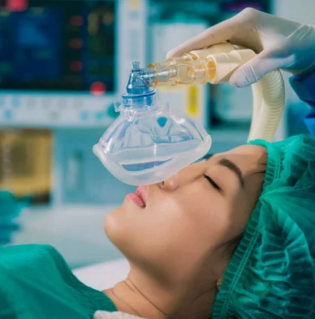
Anesthesia - loses tissue sensitivity in a short time under the influence of anesthetics. Such drugs block the transmission of nerve impulses, so the signals do not reach the brain, that is, the body does not react to irritation in the form of painful sensations.
Local anesthesia lasts an additional 2. 5 hours after surgery. However, when drinking alcohol, the anesthetic effect of the drug disappears immediately, and an acute pain attack develops that cannot be suffocated even with anesthetic drugs.
The situation is much more complicated with general anesthesia used during abdominal surgery when the body needs to be protected from shock and pain.
The following complications can occur after recovery from anesthesia:
- headaches;
- nausea;
- muscle weakness or tension;
- sore throat;
- nausea;
- drop in blood pressure;
- hallucinogenic delirium.
Why can't you drink alcohol after anesthesia?
This combination can lead to critical conditions such as anaphylactic shock and neurological disorders. The duration of withdrawal of anesthetic drugs depends on the type, dose and health of the patient. As a rule, the main part is removed from the body within a day after surgery, and the residue within 2-3 days.

What could be the consequences of this
Not all antibiotics are created equal: some are milder, others are more aggressive. The following are groups of medications that should be taken according to your doctor's instructions, with the exception of any health-related practices:
- chloramphenicol;
- tetracycline;
- nitroimidazole;
- macrolide;
- cephalosporin;
- lincosamide;
- aminoclycoside.
Serious health problems cannot be avoided if you ignore the restrictions. The person is facing:
- heart attack;
- stroke;
- allergic reaction;
- Tissue washing can turn into gangrene.
Biseptol is similar in effect to disulfiram (used to encode alcoholism). If you mix it with alcohol, the patient's temperature rises, severe vomiting, palpitations accompanied by headaches appear. Bleeding may occur due to vasospasm in the brain. The result - a heart attack, coma or death.
Rules for drinking alcohol after gallbladder removal
If a person does not feel unwell after a cholecystectomy, it does not mean that they are drinking alcohol. Especially in this case, the systematic intake of intoxicants is dangerous. In many patients with a removed gallbladder, the body spontaneously reacts to the effects of alcohol with persistent vomiting or severe pain. This is due to the fact that after the operation, the digestive organs begin to work in extreme conditions.
Cholecystectomy itself forces many patients to reconsider their diets and get rid of bad habits. Only in this case, long-term remission is possible and it is possible to live without persistent pain in the hypochondria.
After removing the gallbladder, it is best to completely forget about alcohol in any form and amount. There are many patients who are able to completely eliminate alcohol from their lives. However, not all people are able to completely stop drinking alcohol - after all, most of the traditions of Slavic culture are associated with the compulsory use of strong drinks.
Therefore, it is important to know the basic rules of drinking alcohol after removing the gallbladder, what and how much you can drink in a similar situation. Restrictions such as:
can turn into a compromise between the name "white crow" and harm to their health.Generally, gallbladder removal is associated with the development of chronic inflammatory processes in the bile ducts or liver. Lack of gallbladder with such diseases is not a reason to relax and start to master everything. In addition to alcohol, patients at least 2-3 years old are not allowed to eat fatty, fried, smoked and spicy foods. This period after cholecystectomy is considered restorative and is associated with the patient's specific limitations.
Removal of the gallbladder is very common, and it is possible to live a full life after such an operation. However, such an intervention requires a person to monitor their health more closely, follow a diet, and eliminate alcohol from their lives as much as possible.
Long-term remission is possible with the patient's health only if a regulated lifestyle and addictions are abandoned. The need to severely restrict or exclude alcohol does not prevent many people from living happily, preferring to find real reasons to rejoice.
How much alcohol should not be drunk
Ethanol dilates blood vessels and increases blood circulation, which is very dangerous in the case of open sores in the mouth. Drinking can cause heavy bleeding that can be difficult to stop.
After removal, a clot forms that protects the wound from infection. It can be washed away with increased bleeding, then inflammation cannot be prevented. The result - twitching pain, swelling, mammary gland, fever. You will have to go to the dentist again, clean the pus, open the gums and take antibiotics.
In addition, ethanol can trigger an allergic reaction to a pain medication. No one can predict this, because each body reacts to painkillers in its own way. The most common manifestations: skin rash, itching, edema, difficulty breathing. Anaphylactic shock is even possible.
The period during which the use of strong drinks is prohibited is determined individually. Before starting to drink, the patient should make sure that the wound heals and does not bleed in case of accidental mechanical damage. The gums are healthy, there is no swelling and no pain when pressed. There is no rotten purulent taste in the mouth.
You also need to wait until the anesthetic comes out of the blood. This process lasts from one to several days: the time depends on the injected dose, the individual metabolic rate and the type of anesthetic. As a rule, there will be no traces of the drug in the blood until the third evening.
Tooth extraction is a relatively harmless procedure, but there are still some restrictions, especially if the doctor uses anesthesia. You need to be careful when drinking alcohol - even a small amount can lead to serious consequences.
Effects of alcohol on blood circulation
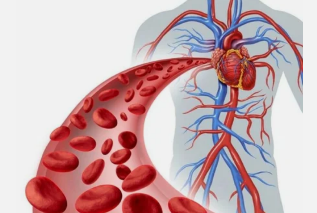
Surgery sometimes damages not only the soft tissues, but also the blood vessels that supply certain parts of the body. With a favorable result, they are restored, so no body suffers from lack of oxygen and excess carbon dioxide.
Surgeons note that such a result is possible only with strict adherence to all recommendations for the recovery period. In particular, circulatory problems occur when a person disobeys a doctor and drinks alcohol. Alcohol adversely affects the condition of the vascular bed.
Small doses of alcohol are believed to have a beneficial effect on blood circulation, but this only applies to completely healthy people. The situation is different after the operation.
Even a small portion of any strong drink can be harmful. Doctors explain this by the fact that under the influence of ethyl alcohol, smooth muscle tissue undergoes a sharp contraction. In other words, the arteries and vessel walls become an increased tone. The lumen narrows and the rate of blood flow inside decreases.
As a result, the patient's blood pressure drops and the supply of oxygen to tissues and organs deteriorates. This means that recovery after surgery will be slower and the rehabilitation period will be extended indefinitely.
Preoperative alcohol damage
The presence of ethanol in the body is unacceptable not only after surgery, but also in preparation for it. Even if the operation is performed with a modern endovideo surgery method that does not require standard cavity incisions. Drinking alcohol before surgery contributes to the breakdown of the cardiovascular system, which threatens the risk of death from heart failure.
In some cases, blood alcohol can cause problems with short-term anesthesia without relieving the pain. Sometimes patients ask if it is possible to drink beer or other carbonated beverages before the intervention in the abdominal cavity. Before surgery, such drinks help to irritate the gastric mucosa with carbon dioxide and, together with ethanol and anesthesia, cause gastrointestinal bleeding.
Even small doses of alcohol taken before manipulating anesthesia can be very difficult to get rid of under general anesthesia. Because of the symptoms of severe hangovers, physicians must bring the operated person to consciousness, combat delirium tremens, and withdraw from anaphylactic shock. Therefore, doctors warn that after laparoscopy you can drink only clean water without carbon dioxide, and even more alcohol. An antibiotic may be prescribed to a woman to prevent the possible development of inflammation, especially after endovideosurgery with removal of an ovarian cyst.
Postoperative complications

According to medical statistics, patients who drink alcohol before or after surgery have a higher risk of complications. Ethyl alcohol and anesthesia are not completely compatible. Anesthesia is the temporary loss of tissue sensitivity under the influence of drugs and anesthetics. Their main task is to block the transmission of nerve impulses. As a result, the signals do not reach the brain, so the patient does not feel pain.
The effect of anesthesia lasts for another 2-3 hours after the operation. If you drink a little alcohol after the operation, the analgesic effect disappears immediately.A similar reaction can occur if alcohol is consumed before surgery.
In this case, additional anesthesia will not give the desired result.
Any surgical intervention for the body is stressful. Drinking alcohol after surgery can cause serious problems. Potential complications include:
- headache;
- nausea;
- nausea;
- Lowering blood pressure.
Ethyl alcohol has a negative effect on blood clotting. It is very thick. The erythrocytes in the blood stick together to form clots that connect blood vessels and small capillaries. Drinking alcohol after surgery can cause a stroke, heart attack or bleeding.
Many alcoholics enter a hospital bed with a disappointing diagnosis that requires surgery and ask themselves, "When can I drink alcohol after surgery? " If someone doesn't know when. And this is especially true during the disease, including before and after surgery. Today we will touch on the subject in more detail and study the physiology of the effects of recently operated ethyl alcohol on the body.
After the operation
After the operation, the patient's body needs a long-term high-quality recovery. To do this, an important list of drugs is usually prescribed to facilitate the process. Intoxication interferes with the recovery process, has a direct negative effect on the body and the immune system, as well as interacts with drugs.
Alcohol is dangerous to use after surgery because it causes the blood to thicken - it affects the blood vessels, causing serious consequences in the form of thrombosis of blood vessels that have not yet healed after surgery. Due to the concentration of alcohol, both the smallest capillaries and the largest blood vessels can overlap, significantly slowing blood circulation and recovery processes.
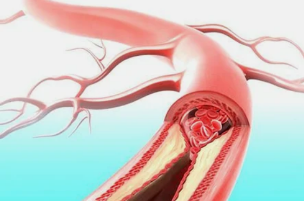
The liver and kidneys of an alcoholic often face serious problems in their work, aggravated by cirrhosis and other chronic diseases. In the postoperative period, the body is already under considerable stress to remove the decay products of strong drugs. Alcohol significantly increases the additional risks.
In the postoperative period, the combination of alcohol and drugs causes a delay in the elimination of toxins from the body. The negative symptoms of this combination are as follows:
- cardiac arrhythmia;
- difficulty breathing;
- increased sweating;
- dizziness;
- lowering blood pressure;
- finished bleeding.
In most cases, strong antibiotics that are not completely compatible with any alcohol product are prescribed to prevent postoperative complications. Under general anesthesia, alcohol has a depressant effect on the central nervous system, often causing hallucinations, hallucinations and other damaging manifestations.
Alcohol during rehabilitation
As with other surgical procedures, it is especially dangerous to drink any alcohol after a laparoscopy. This is especially true in the field of gynecology. After endovideo surgical manipulations associated with the appearance of postoperative pain and inflammation, patients are usually prescribed certain medications. Taking painkillers and antibacterial drugs is not compatible with alcohol, its use is strictly prohibited.
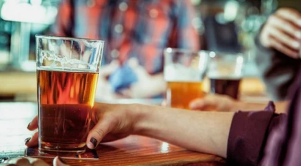
Reasons for banning alcohol after laparoscopy:
- Instead of restoring immunity, the body should expend energy on the removal of alcohol toxins;
- When treating an ovarian cyst laparoscopically, if a woman drinks at least a little beer before surgery, it threatens her with inflammatory complications;
- Alcohol consumption with non-steroidal anti-inflammatory drugs causes hepatocyte death;
- Drinking alcohol after anesthesia slows down the regeneration process and exacerbates hidden diseases and chronic problems;
- vasodilatation, alcohol after anesthesia threatens internal bleeding, bleeding, can cause heart attack or stroke;
- Alcohol strongly thickens the blood, which causes small capillaries to become clogged with accumulated erythrocytes and causes blood clots to form;
- The use of alcohol, which depresses the nervous system, can cause confusion, hallucinations, hallucinations.
Antibiotic rules
The most important rule for taking antibiotics is to use them only when you can't do without them. Instructions for use are symptoms of an acute bacterial infection that the body cannot cope with on its own. Taking antibiotics to achieve the desired therapeutic effect cannot be discriminatory.
It is important to follow the instructions below:
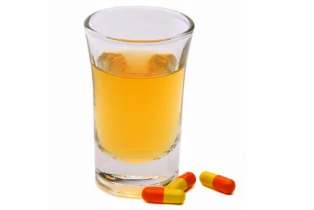
- You can't prescribe an antibiotic on your own if you don't have a medical history
. Only a doctor can determine the cause of the disease - a virus or bacteria. Antibiotics do not help with a viral infection, on the contrary, they can aggravate the course of the disease;
- If you feel well, do not stop the prescribed course of treatment.Recurrence of the disease may occur;
- Do not change the antibiotic dose during treatment. A decrease in dosage threatens the resistance of bacteria to the drug, and an increase occurs with side effects or overdose;
- Do not take antibiotics with tea, fruit juice and especially milk, otherwise it will be useless to take the drug. Milk, milk and fermented milk products are not compatible with antibiotics and reduce the effect of the drug. You can take the drug only with water, about 0, 5-1 glasses;
- Do not take antibiotics at the right time.It is important to follow the instructions for the drug and use the drug as described, ie before, during or after meals. In addition, it is important to monitor the frequency of application (1 time after 24 hours, 2 times after 12 hours, 3 times after 8 hours, etc. ), to establish the desired antibiotic concentration in the body;
- Do not combine antibiotics with physical activity;
- Do not drink alcohol while taking antibiotics.
Before prescribing an antibiotic, you should inform your doctor about the following:
- is currently accepted;
- pregnancy or lactation;
- kidney or liver disease;
- diabetes.
And if you've seen it before:
- occurrence of side effects;
- development of allergic reactions;
- recent use of antimicrobials.
























